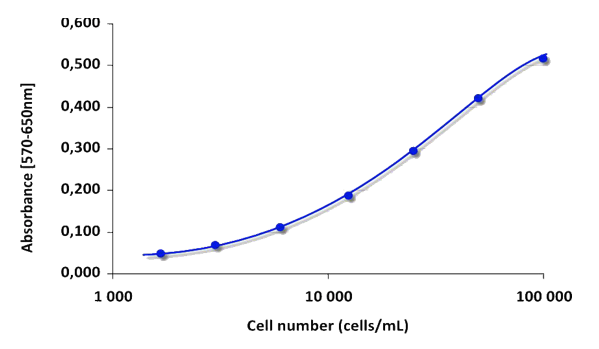Cells are structural and functional unit of all unicellular and multicellular organisms and the process of cell proliferation plays an important role in the development of whole organism and maintenance of adult tissue homoeostasis. In addition, abnormal cell proliferation is also associated with various human diseases such as cancer. Therefore, cell proliferation assays become crucial to scrutinize the rate of cell proliferation. And these assays quantify cell proliferation based on different parameters including rate of deoxyribonucleic acid synthesis, metabolic activity of cells, different antigens associated with cell proliferation and adenosine triphosphate concentration. Thus, there are several methods available to determine cell proliferation including MTT assay. High throughput and reproducible MTT assay is a sensitive and widely used method for the quantification of cell proliferation, which is based on the metabolic activity inside viable cells.
The MTT cell proliferation assay can achieve the accurate quantification of changes in the rate of cell proliferation. The principle of this assay is that the dehydrogenase enzymes in metabolically active cells can reduce the yellow tetrazolium MTT to a purple formazan product that can be solubilized and quantified by spectrophotometry. The reduction of tetrazolium salts is widely accepted as a reliable way to examine cell proliferation and MTT is the most widely accepted detection reagents for the safe, accurate and straightforward quantification of changes in cell proliferation.
 Figure 1. The experimental results of MTT Cell Proliferation Assay
Figure 1. The experimental results of MTT Cell Proliferation Assay
The MTT assay is widely used in cell biology for the study of growth factors, cytokines, nutrients, and for the screening of cytotoxic or chemotherapeutic agents. Since the number of assay steps has been minimized as much as possible, MTT assay is easy to set up and convenient. Another great advantage is that this assay yields relatively low background. Thus, MTT assay is of high sensitivity and accuracy for the quantification of cell proliferation.

Online Inquiry